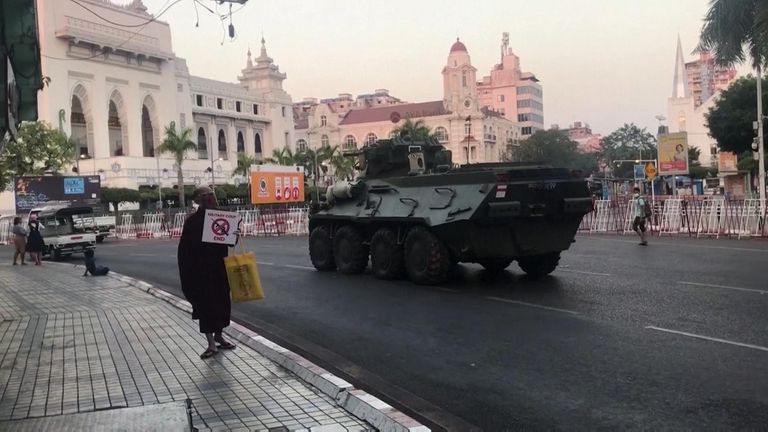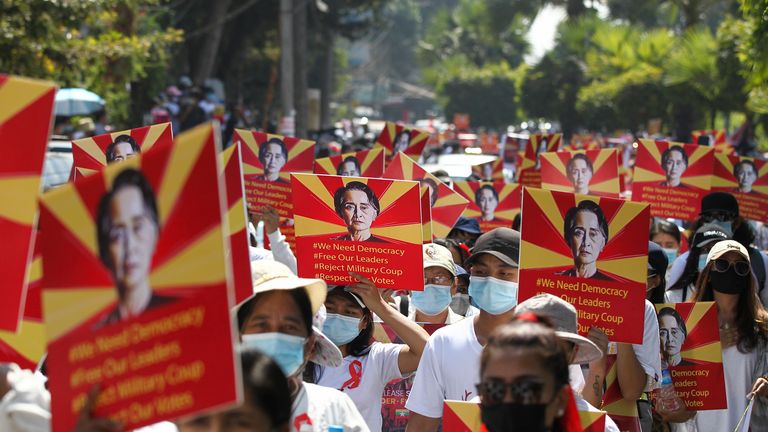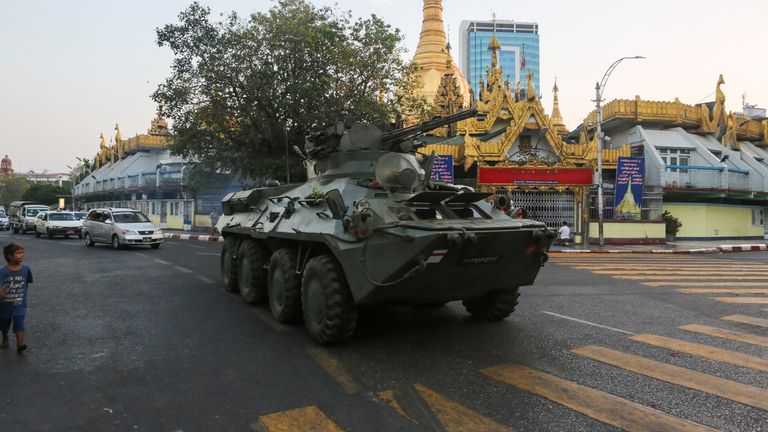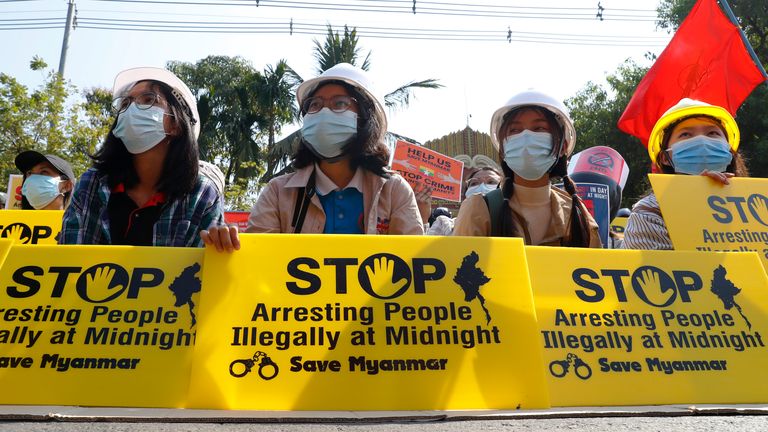Myanmar protests: Armoured tanks roll into in cities as tensions rise
Mass protests by anti-coup activists took place despite the passing of a law to suspend several basic civil liberties.
Monday 15 February 2021 06:29, UK
Tensions have risen in Myanmar following mass protests, with security forces opening fire on protesters at a power plant and armoured vehicles rolling into major cities.
Soldiers were deployed to power plants in the northern state of Kachin on Sunday, leading to a confrontation with demonstrators, some of whom said they believed the army intended to cut off the electricity.
The security forces fired to disperse protesters outside one plant in Kachin's state capital Myitkyina, footage broadcast live on Facebook showed, although it was not clear if they were using rubber bullets or live fire.
Meanwhile, vehicles appeared in protest hotspots in the commercial capital of Yangon, Myitkyina and Sittwe - the first large-scale rollout of military vehicles since the 1 February coup.
There was no official word as to why, but the US embassy in Myanmar urged American citizens to "shelter in place", citing reports of the military movements in Yangon.
A statement signed by an array of foreign ambassadors in Myanmar said: "We call on security forces to refrain from violence against demonstrators and civilians who are protesting the overthrow of their legitimate government."
It added: "We denounce the military's interruption of communications as well as the restriction of Myanmar people's fundamental rights and basic legal protections."
Earlier on Sunday, engineering students marched through downtown Yangon wearing white and carrying placards demanding the release of ousted leader Aung San Suu Kyi, who has been in detention since the coup and charged with importing walkie-talkies.
Ms Suu Kyi has been remanded in detention until Wednesday for a court hearing and will not appear on Monday as initially expected, her lawyer told journalists in the capital Naypyitaw.
Sunday's demonstrations took place after the ruling junta issued a new order suspending several basic civil liberties.
The law passed late on Saturday night requires people to report overnight visitors to their homes and allows security forces to detain suspects and search private property without court approval.
Eight days of street demonstrations are estimated to have drawn hundreds of thousands of people to the streets despite the threat of six months' imprisonment for violating an order banning gatherings of five or more people. The same order imposes an 8pm to 4am curfew.
More than 384 people have been detained since the coup, the monitoring group Assistance Association for Political Prisoners said, in a wave of mostly nightly arrests.
As well as the mass protests across Myanmar, the country's military rulers were faced with a strike by government workers, part of a civil disobedience movement to protest the coup.
Trains in parts of the country stopped running after staff refused to go to work, local media reported, while the military deployed soldiers to power plants where they were confronted by angry crowds.
The junta ordered civil servants to go back to work, threatening action.








